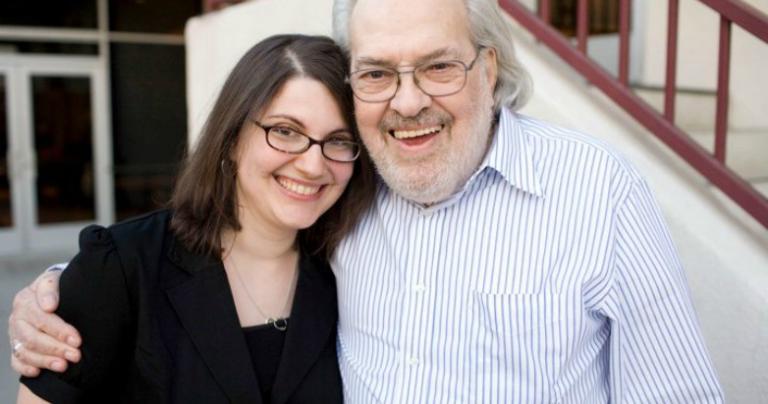
Students could call him Al, he insisted, the fabulously learned man who led text based discussions better than any person I have ever met.
How?
He was endlessly patient.
Al would discuss an idea about texts he knew (in Greek) by heart with a freshman in college for hours. He would let the youngling work through bad ideas with a tenacity that was tireless. He never allowed a foolish idea to just sit there, he would challenge it, but gently.
If you think you know some of what a text means, yet are willing to let other people test out their ideas, then you are a great teacher. Al was a great teacher.
He had great mercy.
I was twenty-three when I met Professor Geier and he overhauled all my views, but without imposing any of his own on me. He was not just patient, Al was merciful. Nobody was as committed to the truth as Al Geier, but when you let down the class, if you were sorry, then you could try again.
We did not end up agreeing about everything. We kept a twenty five year discussion on the fate of Alcibiades going. Oddly, Al saw no hope for Alcibiades, thought Socrates needed to give up on the deeply flawed young man, but Al Geier himself never gave up on anyone. Thank God.
He thought the text said that Alcibiades missed the truth, so he argued that position, but he never met a student he was willing to call Alcibiades. He was a man of great hope.
He knew the text and had no interest in conversations that moved too far from it.
I have met so many academics who bluff or quit learning. They get a routine, a rant, and stick with it. Al refused that path. He was always willing to change his mind and he kept studying the text. Al Geier was never done. If he said a simple thing, or a made a cryptic comment in class, he was not hiding. He could have lectured for hours on every detail of the text and did when we asked him to do so, but he preferred to listen.
The difference between preparation that was patient and a lack of preparation that postures was the difference between genuine Socratic education and sophistry. People forget that the first Socrates would not just ask questions, he would present a hypothesis to his students, but that hypothesis was then guided by what his students could see or understand. Al understood that the “yes” or “no” to Socrates was not mere formalism (some translators leave them out!), but critical.
Over decades, I watched the same hypothesis from Al produce radically different conversations, because the students changed. Al would let a conversation meander a bit, but he would always bring it back to the text and would allow his hypothesis to bend to the student’s understanding of the text, but it had to be an understanding of the text! The text was the thing that he thought might get us to truth, whether it was Plato, Aristotle, Plotinus, the New Testament, or Charles Williams.
This is the first time I have written about Professor Geier in the past tense. Yesterday Professor Al Geier died. I feel I cannot stand a world without him. We will meet, but I will miss him and his particular place no one can fill. I will never read and discuss a text without him, so this will also be the last time I speak of my mentor in the past tense. See you with the Divine Logos, Al, the conversation continues tomorrow.











